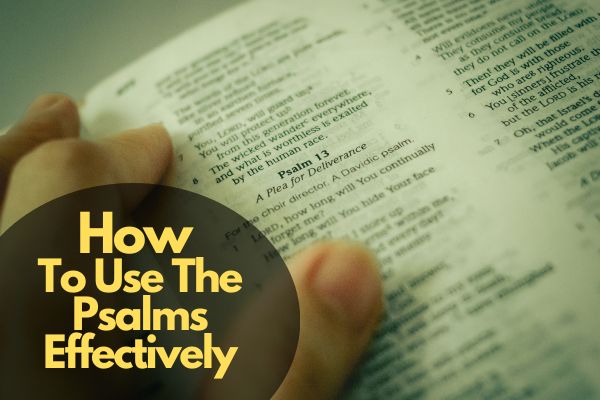Table of Contents Show
The Book of Psalms, nestled within the Old Testament, has long been a source of solace, inspiration, and guidance for people from various walks of life. Whether you seek comfort during challenging times, wish to express gratitude, or simply want to connect with your spiritual side, understanding how to use the Psalms effectively is key. In this comprehensive guide, we will explore various aspects of this ancient text, providing insights, tips, and answers to commonly asked questions. Let’s embark on this enlightening journey.
How To Use The Psalms Effectively
The Psalms are a collection of 150 poetic and spiritual songs attributed to King David. They touch on themes of praise, lament, thanksgiving, and petition. To use the Psalms effectively, follow these steps:
Understanding the Psalms
Before diving into using the Psalms, it’s crucial to grasp their essence. These poetic verses cover a range of human emotions and experiences. They serve as a bridge between the human soul and the divine, providing solace and guidance. Spend time reading and reflecting on different Psalms to gain insight into their diversity.
Personal Connection
The Psalms are deeply personal and can be tailored to your unique circumstances. Read through them and find the verses that resonate with your situation. Use them as a source of comfort, inspiration, and reflection.
Daily Devotion
Incorporate the Psalms into your daily routine. Whether you choose to read a Psalm each morning or evening, it’s essential to make it a part of your spiritual practice. Consistency is key to experiencing their full impact.
Meditation and Contemplation
Take time to meditate on the verses that speak to you. The Psalms can provide profound insights and revelations when approached with a contemplative mind.
Express Gratitude
Use the Psalms as a tool to express gratitude. Psalm 100, for instance, is a beautiful expression of thanksgiving. Recite it in moments of joy and appreciation.
Seek Comfort
During times of trouble or distress, the Psalms offer solace. Psalm 23, known as the Shepherd’s Psalm, is particularly comforting. Let its words soothe your soul.
Petition and Supplication
If you have specific needs or desires, you can turn to the Psalms for help. Psalm 20, for example, is a prayer for divine intervention. Customize your petitions based on your circumstances.
Community Sharing
Consider sharing your experience with the Psalms within your religious or spiritual community. Discussing your insights and learning from others can deepen your understanding.
Conclusion
The Book of Psalms is a treasure trove of wisdom, comfort, and inspiration. To use the Psalms effectively, embrace them as a source of solace, guidance, and personal connection. Whether you turn to the Psalms for praise, lament, gratitude, or petition, their words have the power to transform your life. Embrace this timeless text and let it be your companion on your spiritual journey.
Frequently Asked Questions
Q: Can I use the Psalms for non-religious purposes?
A: Absolutely. The Psalms can be appreciated for their literary and spiritual value, even if you’re not religious.
Q: How can I remember specific Psalms for different situations?
A: Create a personal reference list or use bookmarks in your Bible or digital devices for easy access.
Q: Are there specific Psalms for healing or recovery?
A: Yes, several Psalms, like Psalm 30, are often used for prayers of healing and recovery.
Q: Can I use the Psalms for meditation in a group setting?
A: Yes, group meditation on the Psalms can be a powerful communal experience.








